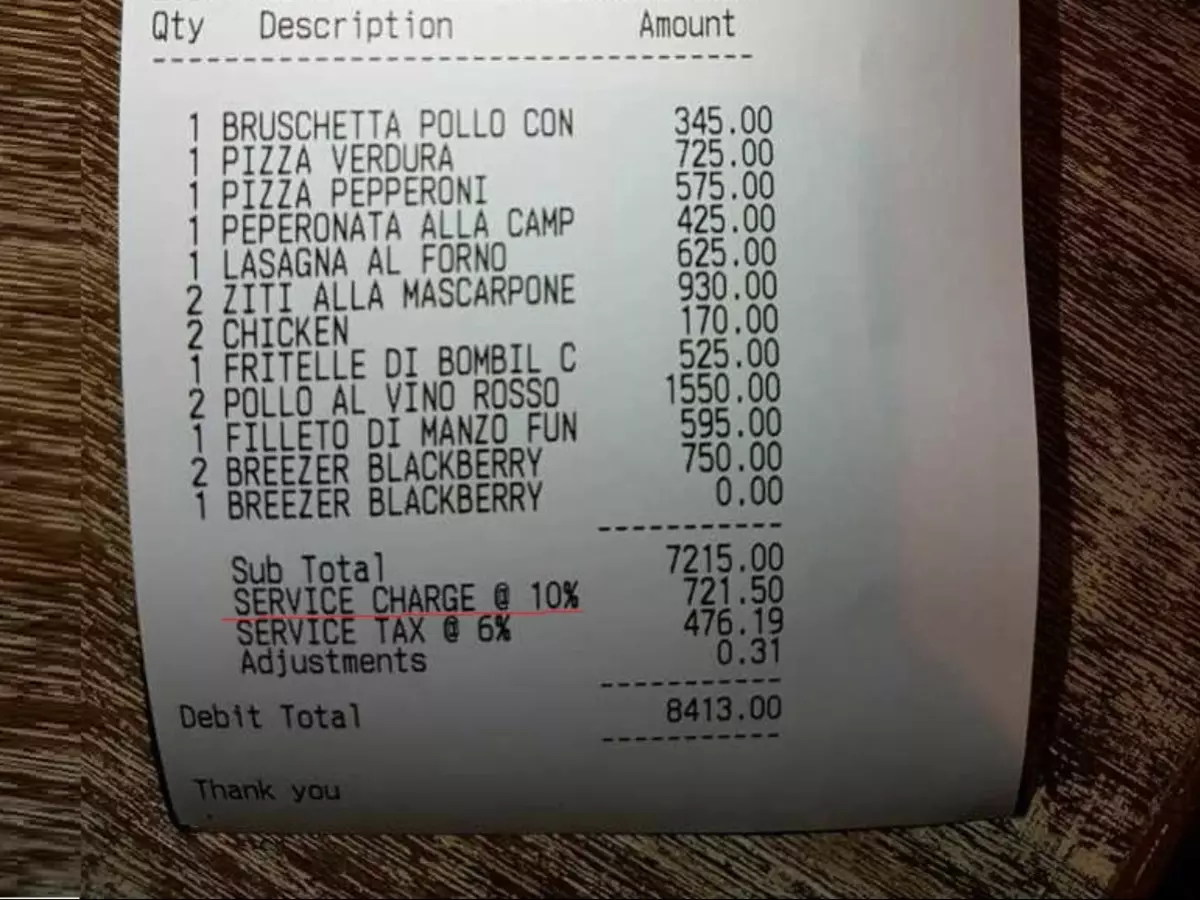

By A Special Correspondent
First publised on 2025-11-24 13:20:33
CCPA Fines Patna Cafe for Auto-Adding Service Charge - A Necessary Wake-Up Call
The Central Consumer Protection Authority has pulled up a cafe in Patna for something many restaurants still try to get away with. It fined the outlet Rs 30,000 for automatically adding a service charge to a customer's bill, even though such a charge is supposed to be voluntary. The case is small on the surface, but its implications are not.
What Triggered the Penalty
A customer complained after noticing that the cafe's billing software added an Rs 801 service charge by default. When questioned, the management claimed the charge was optional, yet every bill generated by their system included it automatically. Even the so-called "refund" issued later was given as a credit note rather than a proper return of money.
The CCPA saw this as a clear violation of its guidelines. It ordered the cafe to refund the amount, stop adding the charge by default, and pay a penalty.
What the Rules Actually Say:
The authority's guidelines on service charge are unambiguous.
Restaurants cannot: Add service charge automatically, hide it under another label or club it with the main bill and apply GST on it.
If a restaurant wants to ask for a service charge, it must make it voluntary, visible, and genuinely optional. The customer has complete freedom to refuse.
Courts have backed this approach. They have repeatedly said that a service charge can only be considered after service is delivered and not forced on the customer as a condition for dining.
Why This Case Matters
One: It strengthens consumer rights.
Many diners treat the service charge as a mandatory line item because it sits neatly next to GST and other taxes. This case pushes back against that assumption. If the charge is optional, it must function like an option, not a trick.
Two: It closes the "software excuse."
Restaurants often blame their billing systems for auto-adding charges. The penalty makes it clear that this won't pass muster. If software is the problem, fix it. Customers shouldn't pay for a back-end shortcut.
Three: It sets an enforcement precedent.
The CCPA acted on an individual complaint. That's significant. It signals that regulators are willing to intervene even in small cases, which may encourage more people to question unfair bills.
The Larger Issue
The hospitality industry argues that service charge helps pay staff fairly. That may be true, but fairness cannot come through opaque billing. If restaurants want diners to contribute, they need transparency, not coercion disguised as routine.
The Patna cafe may treat the penalty as a one-off setback, but the message is wider. Restaurants cannot slip optional charges into mandatory-looking bills. And consumers are not helpless. Checking the bill - and questioning anything that looks automatic - remains the simplest way to protect oneself.











